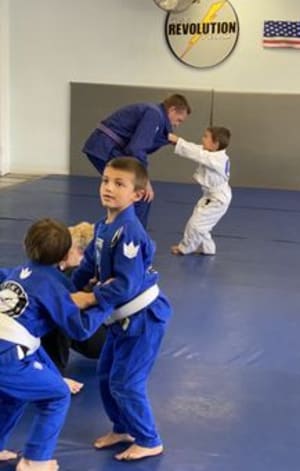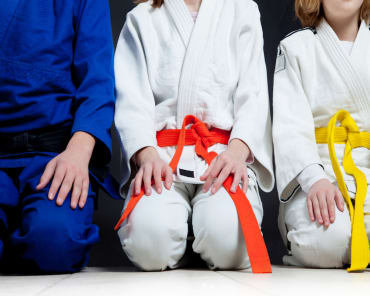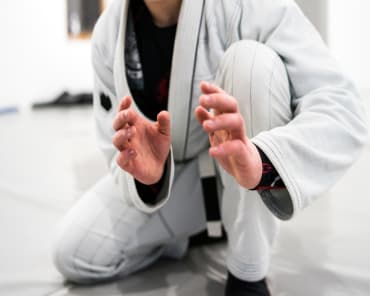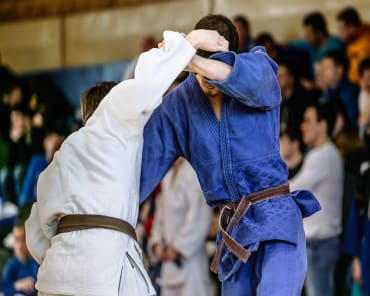
Brazilian Jiu-Jitsu (BJJ) is a physically demanding sport that requires strength, flexibility, and mental acuity. While the benefits of training are numerous, the risk of injury is also a reality that practitioners must acknowledge. However, with proper precautions and awareness, many injuries can be prevented. Here are some practical injury prevention tips for Jiu-Jitsu athletes to help you stay safe on the mats and keep progressing in your training.
1. Warm Up Thoroughly
A proper warm-up is essential before any training session. It prepares your body for the physical demands of Jiu-Jitsu, increases blood flow to your muscles, and improves flexibility.
Warm-Up Tips:
- Dynamic Stretching: Focus on dynamic stretches that mimic the movements of Jiu-Jitsu, such as hip openers, arm circles, and torso twists.
- Joint Mobility: Spend time moving each joint through its full range of motion to improve flexibility and reduce the risk of strains.
- Gradual Increase in Intensity: Start with low-intensity drills and progressively increase the intensity to prepare your body for sparring.
2. Focus on Technique
Proper technique is crucial for preventing injuries. Practicing movements correctly reduces the risk of strains, sprains, and other injuries.
Technique Tips:
- Seek Instruction: Always learn new techniques from qualified instructors and ask for feedback on your form.
- Drill Slowly: When learning a new technique, drill it slowly to ensure you understand the mechanics before increasing speed and intensity.
- Partner Responsibly: Be mindful of your training partner's safety. Avoid using excessive force during drills and sparring, and communicate openly about comfort levels.
3. Listen to Your Body
Understanding your body’s limits is key to injury prevention. Pushing through pain can lead to serious injuries and prolonged recovery periods.
Body Awareness Tips:
- Recognize Warning Signs: Pay attention to any unusual pain or discomfort. If something feels off, take a break or modify your training.
- Take Rest Days: Incorporate regular rest days into your training schedule to allow your body to recover and prevent overuse injuries.
- Cross-Train: Consider incorporating complementary activities, such as swimming or yoga, to strengthen different muscle groups and improve flexibility without the wear and tear of constant mat training.
4. Stay Hydrated and Maintain Nutrition
Proper hydration and nutrition play a significant role in your overall performance and injury prevention.
Hydration Tips:
- Drink Water: Stay hydrated before, during, and after training. Dehydration can lead to muscle cramps and fatigue.
- Electrolytes: Consider consuming electrolyte-rich drinks, especially during intense training sessions, to replenish lost minerals.
Nutrition Tips:
- Balanced Diet: Maintain a balanced diet that includes a mix of carbohydrates, protein, healthy fats, and plenty of fruits and vegetables to support your training and recovery.
- Post-Workout Nutrition: Refuel after training with a combination of protein and carbohydrates to promote muscle recovery and reduce soreness.
5. Use Protective Gear
While Jiu-Jitsu is generally a safe sport, wearing the appropriate protective gear can help prevent injuries, especially during sparring.
Protective Gear Tips:
- Mouthguards: Consider wearing a mouthguard to protect your teeth and jaw during sparring.
- Knee and Elbow Pads: These can provide additional support and cushioning during intense drills and sparring sessions.
- Grappling Shoes: If your academy allows it, wearing grappling shoes can provide extra traction and support for your feet.
6. Incorporate Strength and Flexibility Training
Supplementing your Jiu-Jitsu training with strength and flexibility exercises can significantly reduce the risk of injury.
Strength Training Tips:
- Focus on Core Strength: A strong core is vital for stability and balance in Jiu-Jitsu. Incorporate exercises like planks, bridges, and medicine ball workouts into your routine.
- Functional Movements: Include exercises that mimic the movements used in Jiu-Jitsu, such as squats, lunges, and kettlebell swings.
Flexibility Training Tips:
- Regular Stretching: Implement a regular stretching routine to improve your flexibility and range of motion. This can include static stretching after training and dedicated flexibility sessions.
- Yoga: Practicing yoga can enhance your flexibility, strength, and balance while promoting mental focus and relaxation.
7. Cool Down After Training
Cooling down is just as important as warming up. It helps your body transition back to a resting state and reduces muscle soreness.
Cool Down Tips:
- Static Stretching: Spend time performing static stretches targeting the major muscle groups used during training, such as the hamstrings, quadriceps, and shoulders.
- Foam Rolling: Incorporate foam rolling into your cool-down routine to release muscle tightness and improve circulation.
8. Stay Educated
Knowledge is a powerful tool for injury prevention. Stay informed about common injuries in Jiu-Jitsu and best practices for avoiding them.
Education Tips:
- Attend Seminars: Participate in seminars or workshops focused on injury prevention and recovery.
- Read and Research: Explore articles, videos, and resources about injury prevention, recovery techniques, and proper training practices.
Conclusion
Injury prevention is crucial for any Jiu-Jitsu athlete looking to stay safe and maximize their training. By following these practical tips—warming up thoroughly, focusing on technique, listening to your body, staying hydrated, using protective gear, incorporating strength and flexibility training, cooling down, and staying educated—you can reduce your risk of injury and enjoy your Jiu-Jitsu journey. Remember, prioritizing your health and safety will not only enhance your performance but also allow you to train consistently and achieve your goals on the mats.






